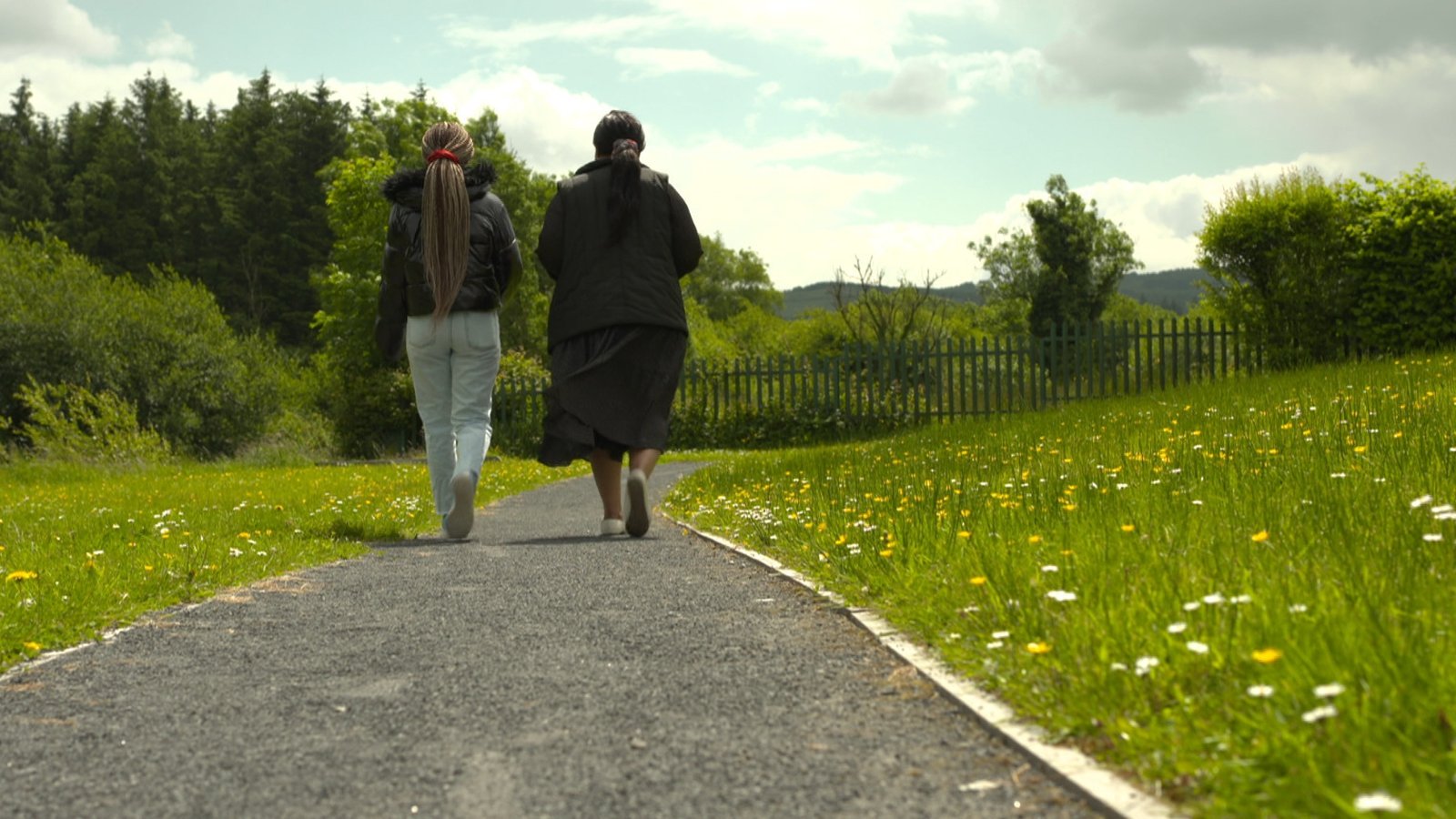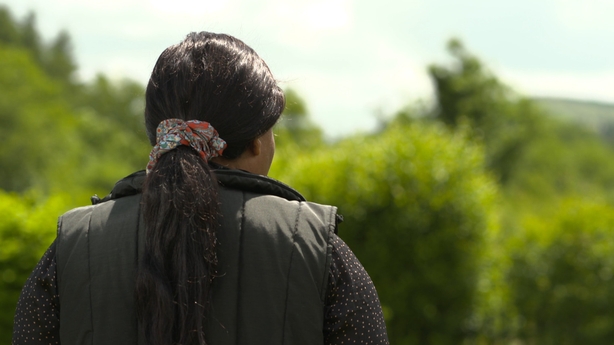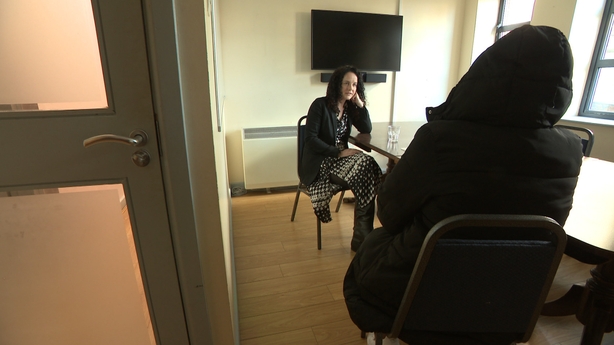World
Growing concern some refugees could end up homeless

There is growing concern over the number of asylum seekers who have been given refugee status or permission to remain in Ireland who have the potential of becoming homeless.
For almost two years, those living in Direct Provision who have been granted status are being advised by the International Protection Accommodation Service to seek alternative accommodation.
The Department of Integration has said the policy ensures accommodation is available to newly arrived people seeking international protection.
On Monday, the European Migration Network in Ireland said a large number of recognised refugees are struggling to move out of Government-provided accommodation into autonomous housing.
The EMN, which is part of the Economic and Social Research Institute, found that refugees were an increasingly large group facing significant challenges accessing housing.
‘Adjusting to a new school was the hardest thing’
Having received status to stay in Ireland, Shelley received a letter last year to say she and her children would be moved on from their IPAS/Direct Provision Accommodation in Mosney to alternative accommodation.
The family of four (Shelley and her three children) were moved 200km west to alternative accommodation, resulting in Shelley leaving her job.
Her eldest daughter Rose said goodbye to her secondary school friends to travel west where she now lives in one room with her mother and her brothers.
The transition has been difficult for the 16-year-old.
“I can’t study in the room because obviously there are other people in the room and if I want to study, I have to study at night. Downstairs, they have no study rooms, so, I have to wait until like around 10 or 11 to start doing my homework or studying, which meant that I barely got any sleep most of the time, so that was not fun.”
We need your consent to load this rte-player contentWe use rte-player to manage extra content that can set cookies on your device and collect data about your activity. Please review their details and accept them to load the content.Manage Preferences
Rose also wanted to do specific Leaving Cert subjects, but she was limited in her choices.
She did Physics until Christmas before she managed to get transferred into the Biology class – a requirement for medicine which she hopes to do in university.
“… having to catch up on the work that they (classmates) had already done was very hard and keeping up with what they’re currently doing as well, that was a lot of work.
“Overall, adjusting to a new school was the hardest thing for me. There were so many times where I just cried because I couldn’t handle the pressure and like, honestly, even thinking about it is not the greatest thing right now.”
Shelley has left most of the family’s belongings in Drogheda in the hope of returning.
Over the past year she has been travelling across the country to view houses, but in the current climate, securing a rental is impossible.

Shelley was also accepted into a degree course in Psychiatric Nursing at a Dublin university, but that has been postponed.
“I still wish to go back there … to go to university, which is something that it’s like, upgrading myself to be useful, but it’s hindered in a way, I can’t do it from here. I had to defer it with the hope that maybe by this time I would have got something, but unfortunately here I am with nothing and it’s so stressful.”
The IPAS process of transferring those with status to alternative emergency accommodation got under way in September 2022 with single people and couples who had received their status.
Essentially, the transfer policy was put in place to make accommodation in non-emergency settings available to newly arrived asylum seekers seeking international protection.
The EMN research notes that IPAS adheres to a policy of non-eviction of International Protection Applicants into local authority operated emergency homeless accommodation.
However, refusing to be transferred to alternative accommodation can result in them losing their IPAS accommodation.
Therefore, challenges faced by those trying to access autonomous housing coupled with IPAS’ policy to not evict them into homelessness has led to people staying in IPAS accommodation (Direct Provision) for long periods once they get their status.
Understandably, the longer they spend in IPAS accommodation, the greater the likelihood that they will integrate into communities through work and education.
The research also notes that there may also be a financial incentive for people to stay on in IPAS accommodation for an extended period, considering the scarcity of affordable housing, the high cost of living and the challenges in entering the housing market, alongside the non-implementation of the contribution policy in IPAS accommodation.
“What we find is it becomes extremely difficult to find housing if you don’t have social networks and if you get moved to somewhere where you haven’t been before, you’ll inevitably end up on social welfare”, according to Madeline Allen who is Policy and Advocacy Officer with the Irish Refugee Council.
“Landlords don’t like that, they want you to be working, they want to know that you have connections with the community that you’re in. So, it’s just creating a second barrier to people moving on.”
Sarah, who has refugee status, was studying Children’s Nursing QQ1 level 5 at Inchicore College and doing a placement in one of Dublin’s children’s hospitals when she learned of her transfer.
The Refugee Council requested that the move be paused to enable her to complete exams, but this was refused several times.
Eventually she was given permission to do so, before she was transferred to Monaghan from Dublin two weeks ago.

“I’m still struggling to adjust. Not that the place is not good, but to adjust to my mental health knowing that…I don’t know. It’s like I’ve just come into the country.”
Like Shelley, Sarah sought to further her career by applying to a university in Dublin with a view to working with intellectually disabled people.
Again, this prospect is on hold as she searches for private accommodation.
The EMN has found that discrimination by landlords is often based on the individual’s ethnicity, immigration status, HAP status and the fact they were coming from IPAS/Direct Provision accommodation.
‘It’s like they don’t care’
According to the Department of Integration, IPAS has a dedicated transition team who work in collaboration with DePaul Ireland, The Peter McVerry Trust, the Department of Housing and local authorities to support residents with status to exit IPAS accommodation and access other housing options.
Those supports were not evident to Shelley or Sarah.
“Being moved from Dublin to another county, it’s not going to be a problem if the transition of it is like clear and well informed. I know I was informed I was supposed to move but not outside Dublin. The authorities know the situation that we face in trying to find accommodation, but it’s like they don’t care”, according to Sarah.
The EMN report notes that under law, Beneficiaries of International Protection are entitled to social housing and housing supports upon the same conditions as Irish citizens.
These rights are different from those granted to many other groups of migrants, who have a variety of restrictions to welfare entitlements and housing entitlements like those on shorter-term permits.
There is a view that by moving people so far from where they have settled or been based for years will frustrate people out of the IPAS system.
The problem is that many of them are being moved so far away from their workplaces, any prospect of an income to pay rent is gone.
For some, transfers are not a one-off occurrence.
Shelley has received another IPAS letter to say the family will be moving again in July.
For Rose, who’s now 17 and going into Leaving Cert, it’s difficult to comprehend starting in another school.
“I really don’t know what to do with that one”, she says.
Shelley has accepted that while her future may not be what she expected, all she can do is try to offer hope to her children.
“My own kids, they are worried about where they are going. Which is taking away the privileges of them being kids. They are worrying about adult stuff. I can give them some kind of hope, to hold on to…But I’m hopeless myself.”
The EMN has recommended that to improve access to housing, “improved supply is needed”, particularly social housing and affordable rental accommodation.
It has also pointed to models from other European countries and their feasibility in the Irish context.
It has cited examples such as individual integration plans, transitional housing in separate centres or through rent-a-room schemes (which Belgium uses), the provision of extensive supports for the transition period, and training social workers to support Beneficiaries of International Protection.










